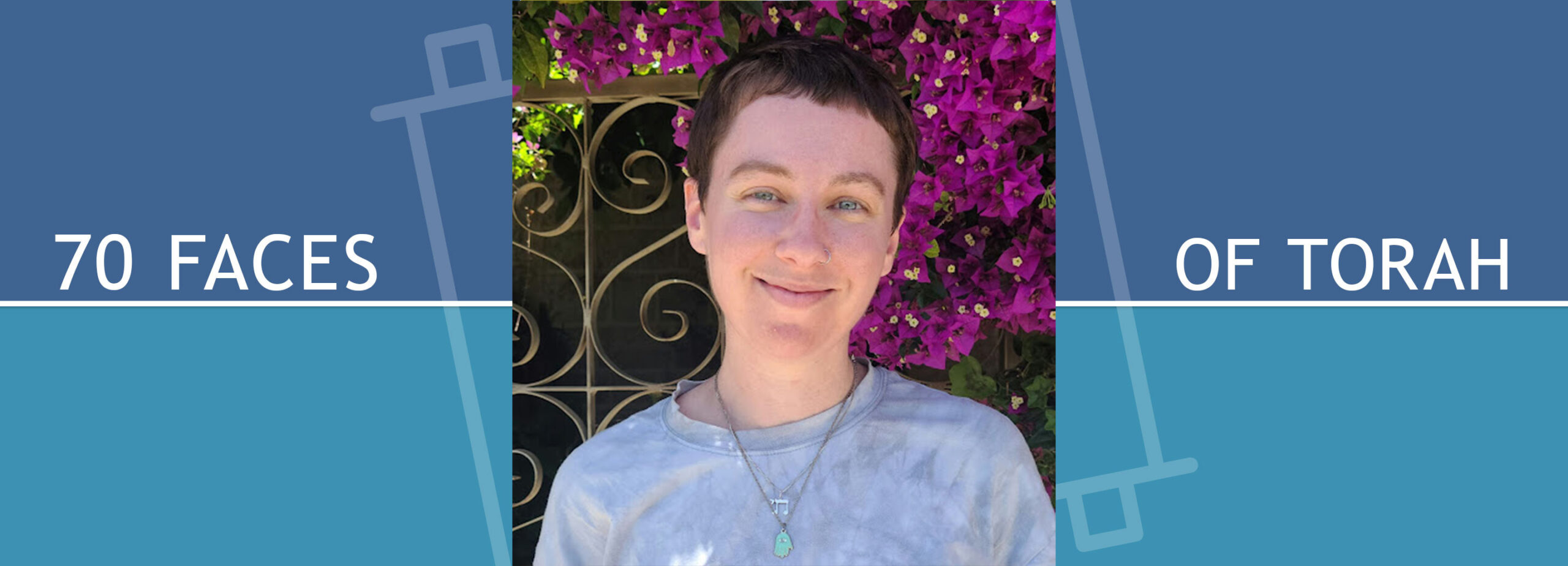Deuteronomy When We’re Rested

Parashat Re’eh Deuteronomy 11:26-16:17
Two weeks ago, I bought lychees and cucumbers from my local makolet (grocer) in Jerusalem. It was Erev Shabbat, and the feeling was tense. “Ma yihye?” The man behind the counter asked. “What’s going to happen?” He spoke the question we were all asking; the question I felt hanging in the air in my quieter-than-usual walks in the days prior. I wished I had an answer. Instead I said, “I don’t know,” and we wished each other an eerie Shabbat Shalom.
Fear is a reality for everyone. It shows up differently depending on our internal and external circumstances. It can be private or it can be collective. I think we all know how fear can make a fundamental difference in how we move through the world. Someone once told me that we encounter a text as we are, and while I was reading this week’s parashah, what jumped out at me was precisely that question: how do fear—and safety—influence how we function and interact with the world around us?
In Parashat Re’eh, Moshe lays out what will happen once the Israelites cross the Jordan: what the people are to do, and what they’re not. What and where they should sacrifice; what they should and shouldn’t eat. The general pull of the parashah leads the reader to stand among the Israelites at the precipice, and vividly imagine life on the other side. Within this context, a few verses jumped out at me.
לֹא תַעֲשׂוּן כְּכֹל אֲשֶׁר אֲנַחְנוּ עֹשִׂים פֹּה הַיּוֹם אִישׁ כָּל־הַיָּשָׁר בְּעֵינָיו׃ כִּי לֹא־בָאתֶם עַד־עָתָּה אֶל־הַמְּנוּחָה וְאֶל־הַנַּחֲלָה אֲשֶׁר־יְהֹוָה אֱלֹהֶיךָ נֹתֵן לָךְ׃
You are not to do—exactly as we are doing here today—each one, whatever is right in his [own] eyes, for until now you have not come to the resting-place, to the inheritance that YHWH your God is giving you. (Deuteronomy 12:8-9, Everett Fox translation)
In the middle of imagining all that will be, Moshe describes what is. In the current moment, each man does what is right in his own eyes (but that won’t be how it goes over there). It might be a description for the sake of more vividly painting the picture of what life will be like across the Jordan, but it halts the reverie and situates us in the here and now.
And what is the distinction that he articulates in these verses?
Looking at the next verse (Deuteronomy 12:9) gives us a window into that difference. “For until now you have not come to the resting-place…” Menucha, the word for resting place, can mean final destination: the place where the Israelites will ultimately rest their heads. But menucha also simply means rest. A deep breath. It conveys a felt sense of safety and protection. I think these verses are hinting at a human reality: when we’re scared or feeling unsafe, each person focuses, to some degree, on their own needs.
Ramban (among other commentators) suggests that, “each one, whatever is right in his [own] eyes,” refers to how sacrifices happen. He explains as follows:
“If someone did not care to eat the meat of bullocks or sheep he was not at all obligated to bring an offering…Thus a person was not bound to bring an offering to the Tabernacle as an obligation… There was nothing obligatory upon them in the matter of the offerings; instead every man did that which was right in his own eyes.”
What I see in Ramban’s reading of, “every man did that which was right in his own eyes,” is the Israelites assessing their capacity. Each individual gets to assess, at each stop the Tabernacle makes: how much, if anything, can I give right now?
I imagine, at this point in the story of the Torah, that the Israelites are worn down. They’ve been exposed and unsettled for forty years. Perhaps they’re even holding the exhaustion of the prior generation in their bones. I imagine them in perpetual fight or flight mode: constantly in movement, on alert, their nervous systems running on high. I can understand why the Israelites didn’t have capacity to act beyond their own needs.
At the same time, this parashah offers a vision for something else. It’s called “Eretz Yisrael.” And in these verses “Eretz Yisrael” is painted as a place where the Israelites, rooted in safety, stability, and rest, can take on more obligation: the web of responsibilities that weave us together, that awaken us to the world beyond our particular vantage point.
It makes sense that when we feel less safe and secure, we might, as a way to survive, focus only on what is right for us. I am comforted by this parashah’s nonjudgmental acknowledgment of this. At the same time, I am bolstered by its pull for us to imagine a different reality: a reality in which we can take a deep breath, where we feel safe and protected, where we can rest easily, and be able to see beyond our own immediate needs and relate to the divine and those around us with a sense of obligation towards them.
I feel deep grief that the metaphorical idealized “Eretz Yisrael” depicted in this parashah is so far from the real Eretz Yisrael for all of its inhabitants today. Of course, this dichotomy isn’t so neat in real life. Even, or perhaps especially, in some of the scariest moments I heard about and witnessed during my time in Jerusalem, people moved towards each other in care and kindness, reaching beyond themselves in seemingly impossible circumstances, just as in other moments we all got myopic and focused only on ourselves.
May all peoples who live in Eretz Yisrael find menucha in both senses of the term: rest and a safe haven, speedily in our days. May there be more just systems of protection and safety for all of the inhabitants of Eretz Yisrael. And may we let the vision of “Eretz Yisrael” in this parashah inspire us, and motivate us to take care of ourselves and each other.
Julia Spiegel is a 4th year rabbinical student at Hebrew College. Julia spent the last 7 months learning and working in Jerusalem, and sitting at her favorite cafe inside the New Gate in the Old City. She is currently serving as the Rabbinic Intern at Nehar Shalom in Jamaica Plain, and loves learning Torah from her cat Ruth, deep conversations with friends, and is on the hunt for the best guacamole in town.
Learn more about Hebrew College’s rabbinical program at Ta Sh’ma (Come & Hear), our prospective student Open Houses (in-person November 18 & virtual December December 8).


